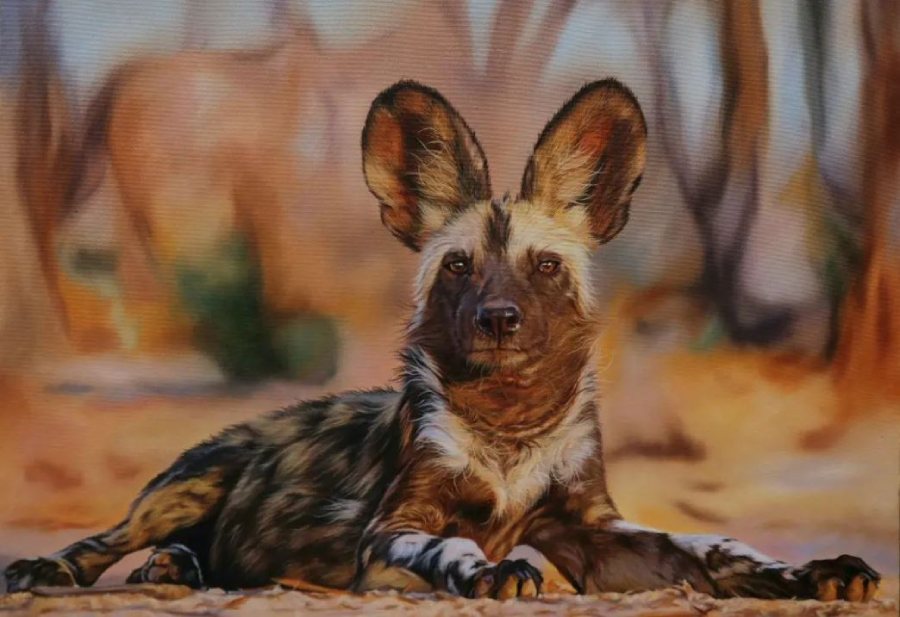
Back from extinction? Or just back for the day? African wild dogs recorded in Uganda for the first time in over 40 years
Recently, the grainy photo [below] from a wildlife ranger’s phone went viral on Uganda’s conservation and tourism WhatsApp groups. There’s no mistaking the dog’s lollop and it’s smudged tricolour coat: African wild dogs have been recorded in Uganda for the first time since the 1980s! Reports say that two individual dogs were seen.

The wild dog sightings were in Narus Valley in Uganda’s most north-easterly protected area, bordering South Sudan. What brought the wild dogs to the Narus Valley? And will Uganda Wildlife Authority rangers see them again? This amazing animal was widely believed to be extinct in Uganda – until now.
It’s exciting to add a new species to my blog and I immediately turned to ‘the wildlife bible’, Richard D. Estes’ The Safari companion: guide to watching African mammals.
What do we know about wild dogs?
- African wild dogs (Lycaon pictus) are also known as painted dogs or painted wolves.
- “Their conspicuous colour testifies to their hunting prowess: here is a predator that doesn’t need to sneak up on its prey.” WOW.
- They are “a lean-long legged canid built for speed and endurance.” They are Africa’s largest dogs.
- African wild dogs are “the most carnivorous and one of the most specialised hunters.”
- Known in East Africa as a plains animal, their range is through all types of bush and montane habitats.
- African wild dogs are highly susceptible to canine diseases. Disease is the main suspect in their demise (they can infected by domestic dogs).

How will the rangers find wild dogs in Uganda?
According to Chris and Tilde Stuart, authors of Field Guide Mammals of South Africa “Wild dogs do not establish territories but have very large home ranges.” (This suggests that the dogs were likely to just be visiting Kidepo).
- Animals live in packs of 10, 20 or even 30. Packs of 20 dogs are common although bigger numbers have been recorded in southern Africa.
- Large packs tend to split. (Are these two individuals splitting to form a new pack?)
- “A strong smell is characteristic of the species.” Imagine!
- Wild dogs make a range of sounds, from a deep rough bark, to a “birdlike twittering” when they are excited, and ultrasonic calls (which are inaudible to humans).
- “The only sure way to see wild dogs is when they are denning” [in their den].
I’ve had so much fun researching this topic! And I hope that the African wild dogs are here to stay in Uganda. You never know what you will see – or smell – when you go on safari. I can’t wait to visit Kidepo Valley National Park later this year (can you guess what I’ll be sniffing around for?)

























